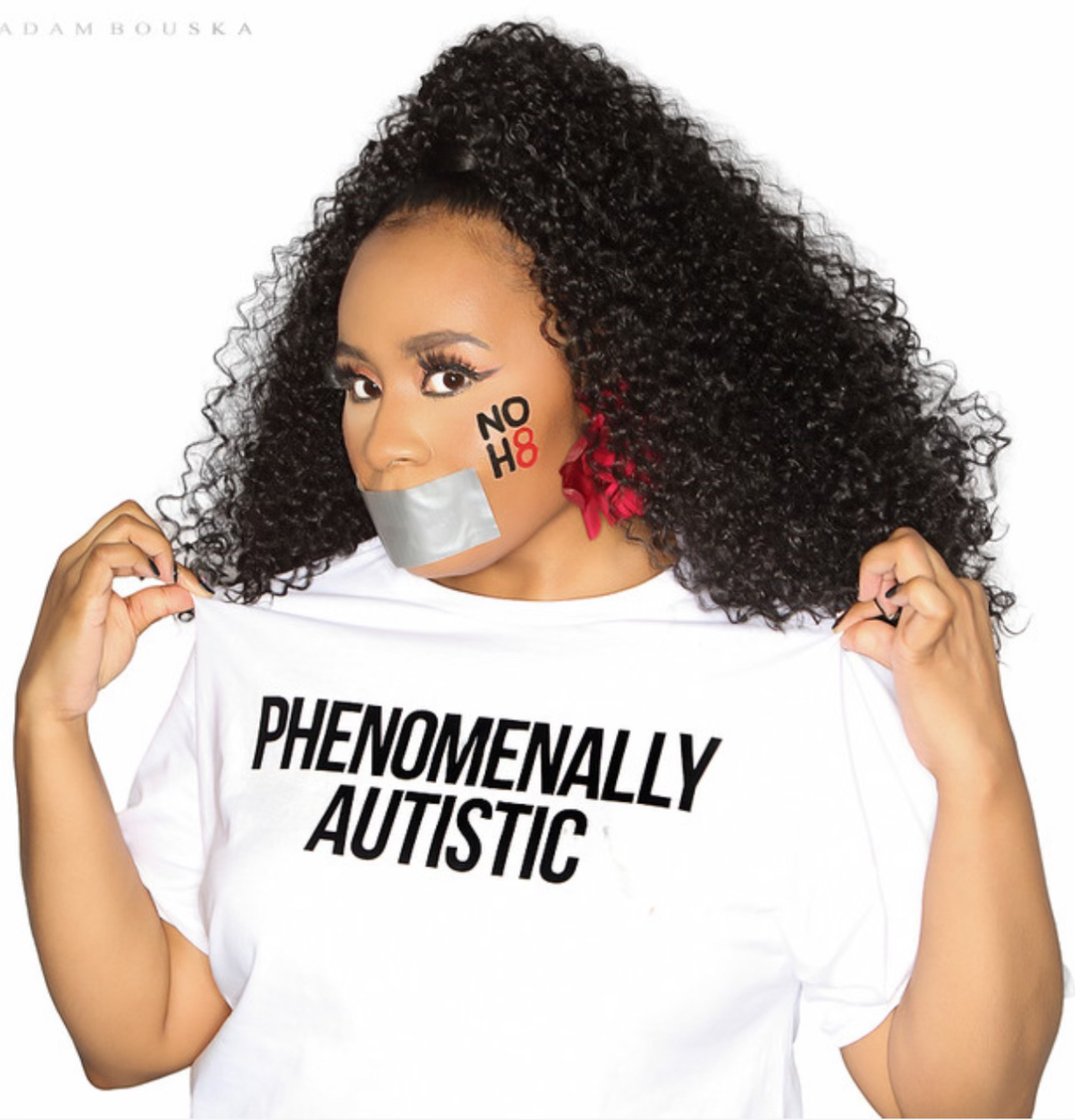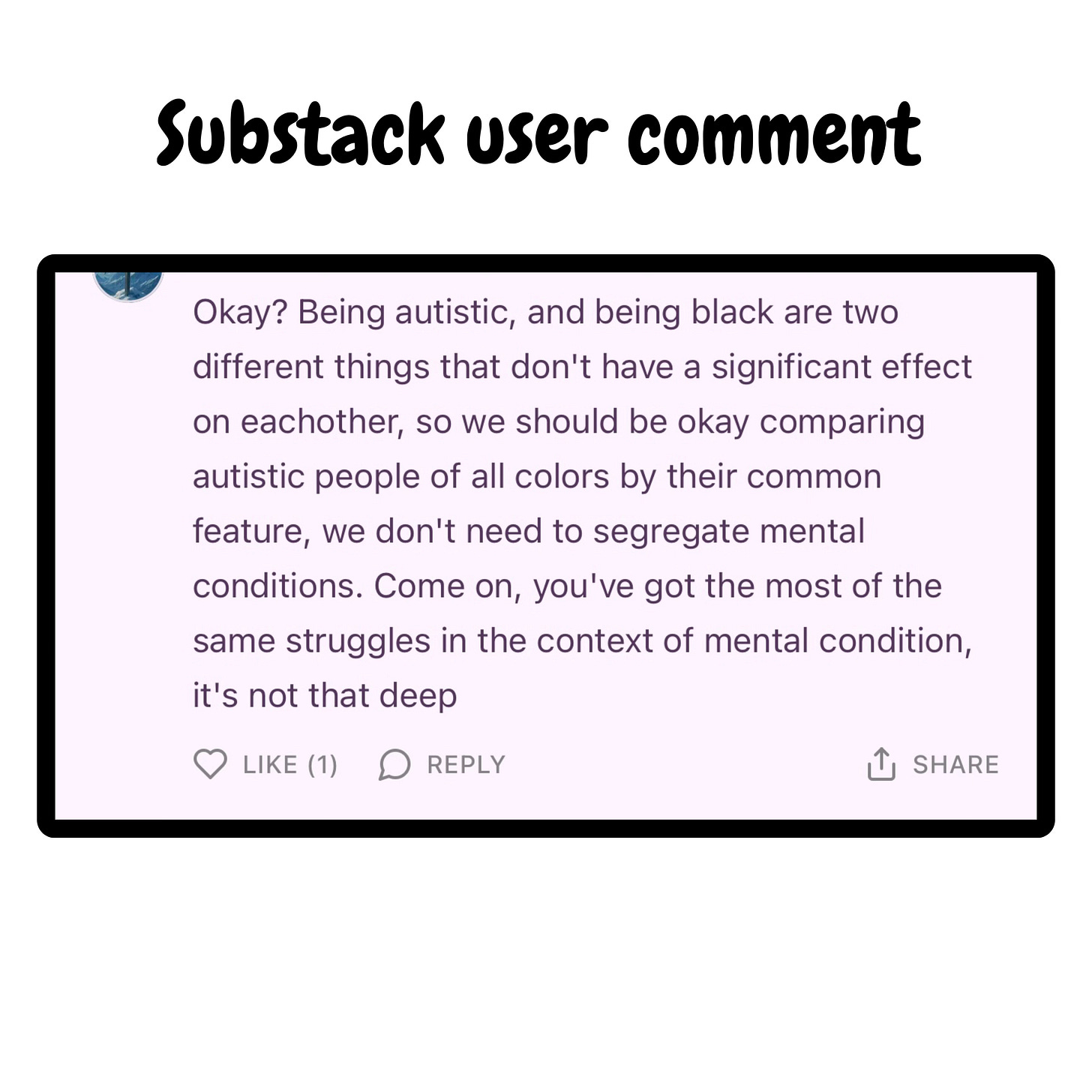Why Race and Autism Cannot Be Separated in Lived Experience
The comment (below from a substack user) suggests that being Black and being autistic are “two different things that don’t have a significant effect on each other.” This statement overlooks the reality of intersectionality: the way overlapping identities shape unique experiences. Being Black and autistic absolutely does have an effect on how a person navigates the world.
First, autism is not a mental illness it’s a neurological disorder. Framing it as a “mental condition” not only misrepresents autism but also contributes to harmful stereotypes. Autistic people face barriers due to ableism, but when race is added into the equation, those barriers multiply in ways that CANNOT be dismissed, like or not.
For example, studies and lived experiences show that Black autistic people are more likely to be misdiagnosed, underdiagnosed, or not diagnosed, me.. I was late diagnosed and it was by ‘accident’ , all compared to their white peers. This means we often don’t receive the same access to support, accommodations, or even basic understanding. Additionally, Black autistic people face the compounded stigma of racism AND ableism, which can affect everything from education to employment to interactions with law enforcement.
So YES it is that deep. When white autistic people try to compare their struggles to Black autistic people without acknowledging race, they erase a vital layer of experience. White autistic people do not face the same racial biases, systemic inequalities, or cultural barriers. To equate the two is to flatten the reality of Black autistic lives.
Acknowledging intersectionality isn’t about “segregating mental conditions” it’s about recognizing the truth: the autistic experience is not monolithic. White autistic people should not compare their struggles to Black autistic people without understanding the impact of RACE. Doing so risks minimizing the very real challenges Black autistic people face every day.


